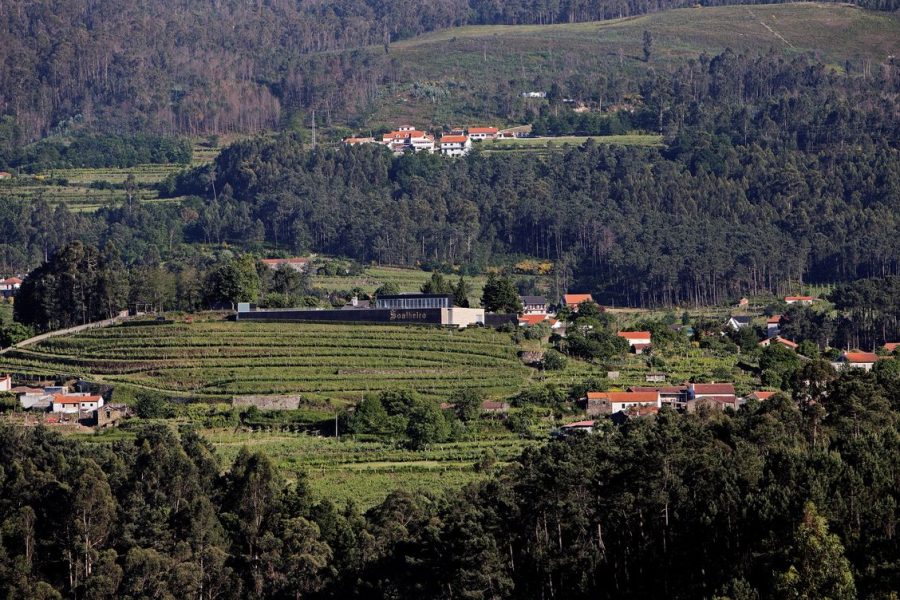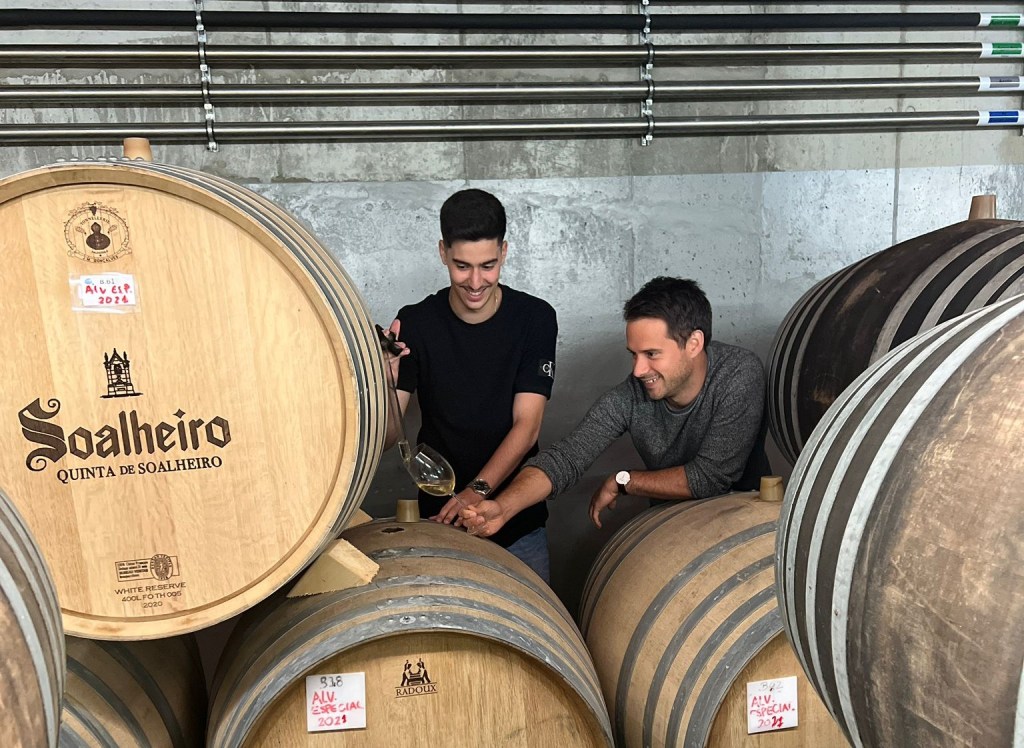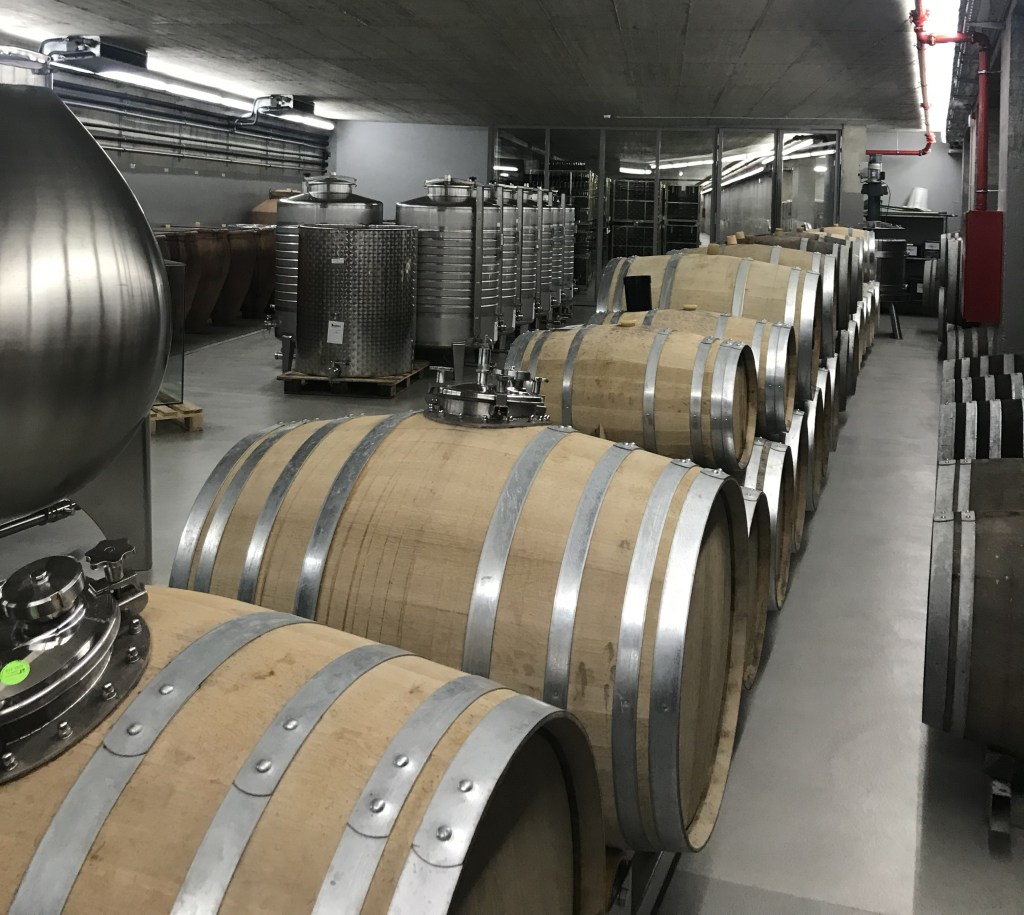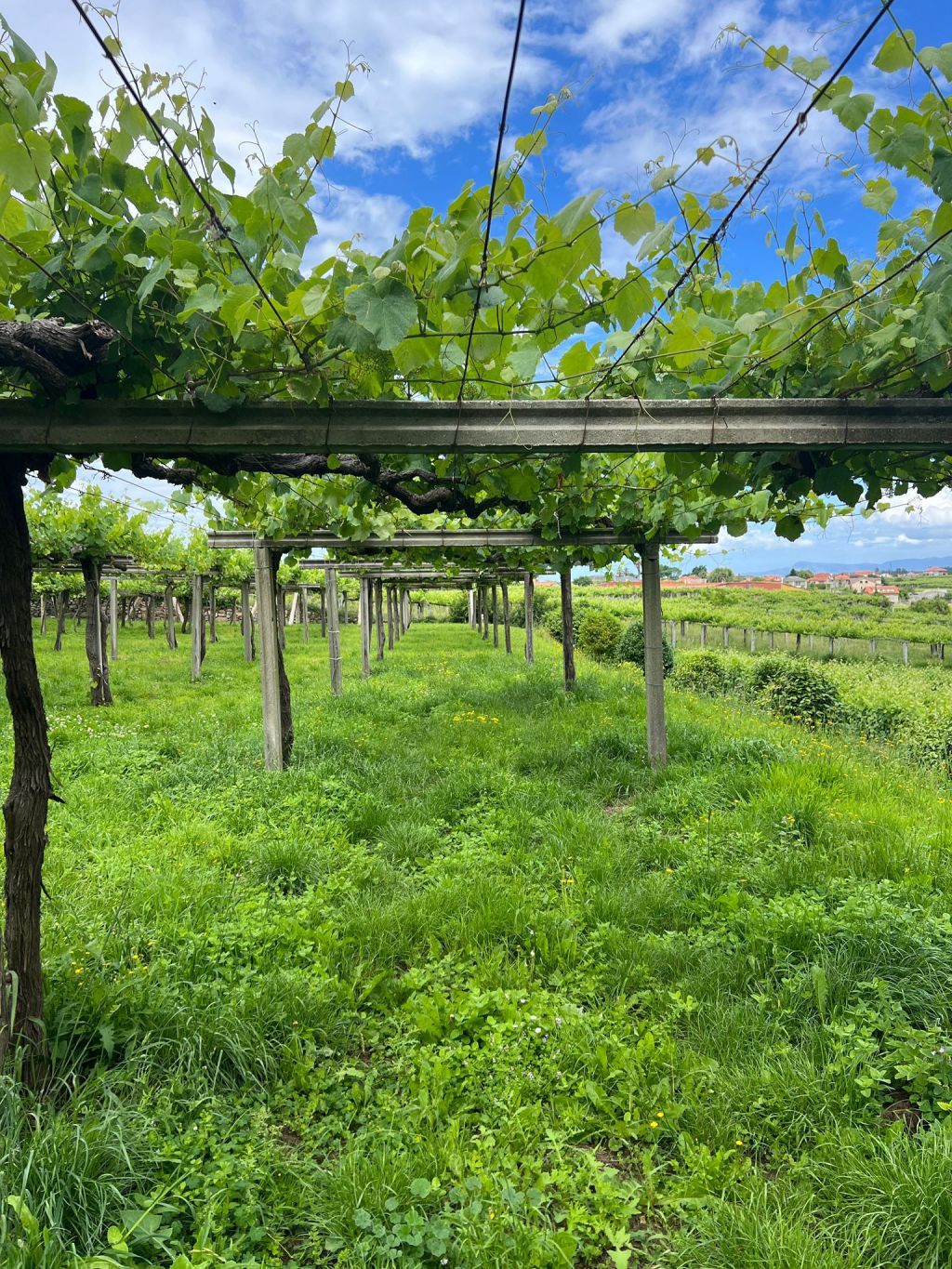Set up by two current Plumpton students, the Not Yet Named Wine Co is breaking new ground in the world of wine making.
“It’s like pre-en primeur,” said Alex Brogan, one of the company’s founders, sitting opposite me in Islington’s The Sampler, “We’re making a wine but democratically handing the winemaking decisions over to the members who buy the wine before the grapes are even picked. People will buy six bottles with the knowledge that they’re going to be as involved in the wine making process as possible, without actually getting their hands dirty”.
Alex first dabbled in the wine industry in the early 2010s with a stint at Majestic. He explains to me that his pipe dream at the time was to earn enough money to buy a vineyard and make his own wine. On a retail salary this was never going to be possible so he made the shift into finance.
He made his first wine in 2019 in the bathtub of his first-floor London flat with grapes brought over from Puglia. “It was a disaster. I only had two days to source the equipment and there was nothing available to buy quickly in the UK, but I did it anyway. It was essentially wine made with home brewing kits and bare hands. There was no way of controlling the temperature of the flat either. If our downstairs neighbours were in, our flat would be absolutely roasting. The conditions were terrible and the wine was full of Volatile Acidity (VA).”
After learning from the mistakes of 2019, Alex tried again in 2020 and was much better prepared. The grapes came over from Puglia but more conventional wine-making techniques were used. This time, the wine came out clean. Alex knew that if he could make a wine this good in his bathtub then he had the capability to do the same but on a larger, more professional scale.
A few months later, while simultaneously seeing in the New Year with a glass of champagne and working on the launch of a new investment bank in Europe, Alex clearly understood that it was the champagne, not the financial sector, that was making him happy. That, along with a loving push from his partner, led him to the application page of Plumpton College. He, alongside Manuel, has just finished his first year of the Viticulture and Oenology degree.
How did the idea come about?
“I knew I wanted to make wine but I didn’t want to work my way up the structure of cellar hand, assistant winemaker and then, eventually, winemaker. I also knew I wanted to make a wine for myself, but without funding or a vineyard of my own this was next to impossible.” After the success of his 2020 wine, Alex had the idea of making wine for private clients, but this required customers to have a large amount of disposable income and massively limited the number of bottles that could be produced. “The format we have come up with allows us to produce on a larger scale while still having a certain level of exclusivity” Alex notes, and it’s a great point. The resulting wine at the end of the process will be completely unique and only available to those who invested. Wine enthusiasts, at all levels, will end up with a wine that is, to some degree, their own without having to pay a ridiculous premium.
So, what’s the project?
Alex explains it to me as “winemaking within an inclusive, democratic and open community”, meaning all of the ego of the winemaker is put aside. Every time a decision that could affect the final product has to be made, buyers will be given a chance to vote. But if the voting options are determined by the winemaker, doesn’t that restrict some of the freedom?
“The way we want to do things is completely open. If someone has an idea about anything to do with the wine or, in fact, the company itself, we’re all ears”, therefore many of the voting options given to the public will come from the suggestions of other buyers. Alex says he’s hopeful that the project will turn into more of a community, bringing together a group of people who begin to get to know each other and engage with one another as time goes on and more wines are released. Depending on how successful this first release is, Alex and Manuel could be in a position to begin releasing two wines a year.
This first release is an Alvarinho made from the grapes of Soalheiro, where Alvarinho has been planted since the early 1970s. Alex is heading over to join Manuel at the vineyard to begin prepping for the harvest that will begin a few weeks later. “In this instance, everything will be done in Soalheiro’s winery meaning we have access to all of their equipment, knowledge and expertise” said Alex, to whom bathtubs are quickly becoming a distant memory.
He goes on to tell me how the relationship with the winery works; “for them, it’s a win-win. They get paid cash upfront and know exactly how many bottles are going to be produced. They’ll never end up in a situation where they have a surplus as we’re selling all of the wine before the grapes are even harvested”. They also get masses of publicity as Alex is keen to make customers aware of where the wine originates from. There are other benefits to working alongside an already established winery. If, for whatever reason, anything were to go wrong, the team at Soalheiro would be on hand to help and offer guidance. In fact, there are already plans for a Chilean red release in February and the following summer he will be looking for a partnership in the UK.
Who is this for?
As the project is very much in its infancy, voting is about more than just wine. At this point, buyers will have the opportunity to vote on larger company decisions, such as logos, labels and more. “This isn’t just a project for wine enthusiasts, it’s also for anyone with an interest in business start ups,” said Alex, who knows just how exciting involvement in a new business venture can be. “We want to appeal to people at all levels, so our regular emails won’t just be full of uninterpretable wine lingo. That’s not to say that there won’t be a lot of technical, somewhat academic winemaking detail but there will be fun elements alongside it that will be open and comprehensible to anyone.” The idea is that anyone, from designers to accountants, can get involved in the project, have their say and be heard by a community of like-minded individuals.
“There’s a ‘pay it forward’ element to it too,” explained Alex, “by investing in one wine, you allow us to create the next”. The hope is that customers will want to invest in the company as a whole, rather than just a particular wine. That’s partly where the community element comes in “we want people to get to know each other though the forum we open up. We want to encourage engagement and get people to really fight for the wine that they want”. Each vote will be more like an open forum, with buyers able to communicate with one another and convince others about taking the wine down a certain path. Nothing is off limits.
What’s the end goal?
“Wine and winemaking is so often romanticised and held up on a pedestal but, in my experience, that’s just not the reality. Grapes are more often than not picked out of necessity or convenience, sometimes when they haven’t quite reached peak ripeness. Sometimes we can’t harvest when we want to because we haven’t got the staff, sometimes the weather isn’t in our favour. We want to strip away this unrealistic image and show people how wine is really made while involving them every step of the way”. Until now, there has always been a disconnect between the wine-maker and the consumer. The involvement between the two is minimal, but Not Yet Named has developed a way to connect with their buyers. The information will come directly from those making the wine and in real time. We will be subject to the highs, lows and everything in between.
The wine industry is so often one of those that falls foul of snobbery, which is why projects like these are so important. “Snobs are welcome too,” notes Alex, “if anything, I’d love to get snobs talking to non-snobs and everyone in between. The part of democracy that has failed us recently is that no-one knows how to talk to each other anymore. It’s frustrating. We should live in a world where, even if people don’t agree, they should still be able to have a kind, open conversation without biting each other’s heads off”. Not Yet Named is building a community where exactly this kind of dialogue is encouraged. They aim to strip winemaking down to its barebones, remove the fantasy, encourage receptive communication and allow the public to see the reality behind the wine-stained curtain.
- Alex and Manuel







